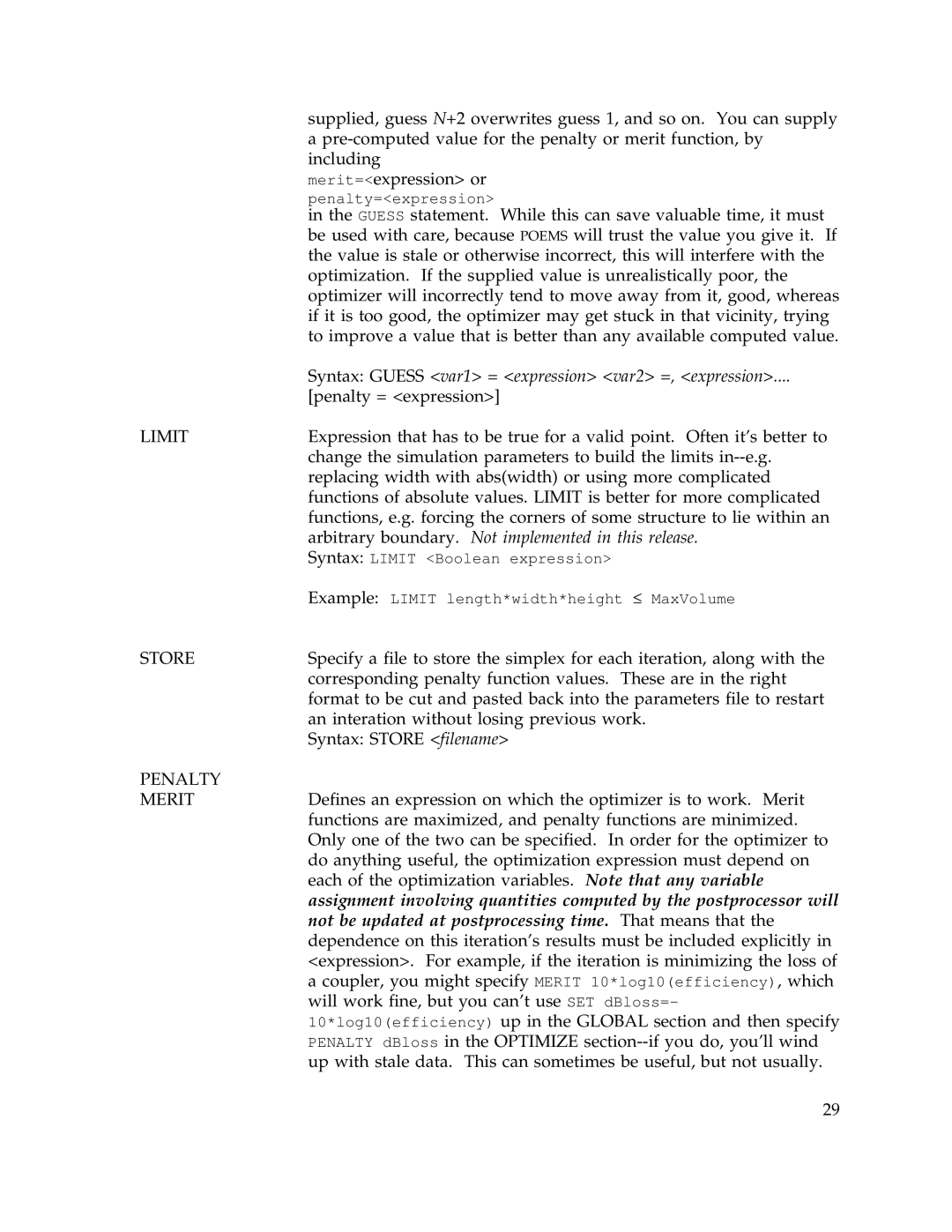| supplied, guess N+2 overwrites guess 1, and so on. You can supply |
| a |
| including |
| merit=<expression> or |
| penalty=<expression> |
| in the GUESS statement. While this can save valuable time, it must |
| be used with care, because POEMS will trust the value you give it. If |
| the value is stale or otherwise incorrect, this will interfere with the |
| optimization. If the supplied value is unrealistically poor, the |
| optimizer will incorrectly tend to move away from it, good, whereas |
| if it is too good, the optimizer may get stuck in that vicinity, trying |
| to improve a value that is better than any available computed value. |
| Syntax: GUESS <var1> = <expression> <var2> =, <expression>.... |
| [penalty = <expression>] |
LIMIT | Expression that has to be true for a valid point. Often it’s better to |
| change the simulation parameters to build the limits |
| replacing width with abs(width) or using more complicated |
| functions of absolute values. LIMIT is better for more complicated |
| functions, e.g. forcing the corners of some structure to lie within an |
| arbitrary boundary. Not implemented in this release. |
| Syntax: LIMIT <Boolean expression> |
| Example: LIMIT length*width*height ≤ MaxVolume |
STORE | Specify a file to store the simplex for each iteration, along with the |
| corresponding penalty function values. These are in the right |
| format to be cut and pasted back into the parameters file to restart |
| an interation without losing previous work. |
| Syntax: STORE <filename> |
PENALTY |
|
MERIT | Defines an expression on which the optimizer is to work. Merit |
| functions are maximized, and penalty functions are minimized. |
| Only one of the two can be specified. In order for the optimizer to |
| do anything useful, the optimization expression must depend on |
| each of the optimization variables. Note that any variable |
| assignment involving quantities computed by the postprocessor will |
| not be updated at postprocessing time. That means that the |
| dependence on this iteration’s results must be included explicitly in |
| <expression>. For example, if the iteration is minimizing the loss of |
| a coupler, you might specify MERIT 10*log10(efficiency), which |
| will work fine, but you can’t use SET dBloss=- |
| 10*log10(efficiency) up in the GLOBAL section and then specify |
| PENALTY dBloss in the OPTIMIZE |
| up with stale data. This can sometimes be useful, but not usually. |
29
